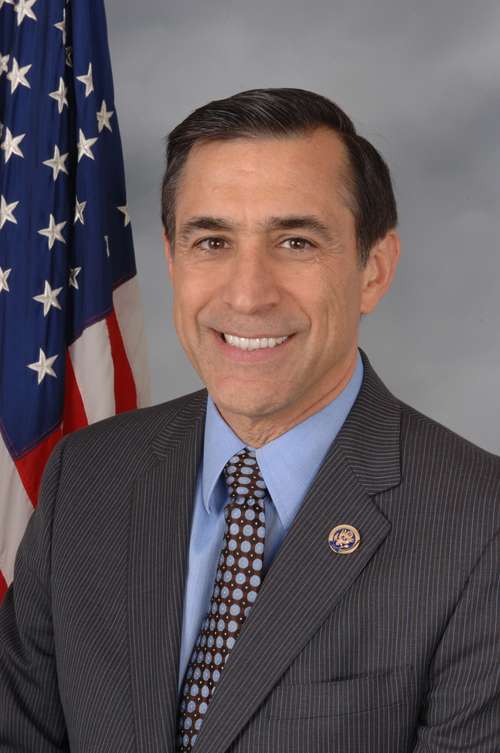Calif. Congressman Rails Against Police Abuse of Property Seizures
Calls for federal reform to stop law enforcement agencies from bypassing state restrictions.


Not everything coming out of the mouths of Republicans today revolves around Donald Trump. Rep. Darrell Issa (R-Calif.), a senior member of the House Judiciary Committee, got some space in the Los Angeles Times' op-ed section this morning to rail against civil asset forfeiture abuse and to call for federal reform.
Issa's jumping off point is the recent highly publicized case where Oklahoma deputies seized $53,000 in cash from the car of a volunteer helping a traveling Burmese Christian band and claimed it was connected to the drug trade (with absolutely no evidence) in an effort to try to keep the money. Once the Institute for Justice got involved, the county dropped the case and sent a check back equal to the amount of money they seized.
Though this looks at first like a state-level situation, Issa's involvement is partly due to how the federal Department of Justice aids, abets, and encourages what happened in Oklahoma:
In 1994, California attempted to rein in civil asset forfeiture abuse, passing a bill that requires a criminal conviction before police can seize assets worth up to $25,000, and that caps the amount of money authorities can keep at no more than 65% of the total.
But unless Congress takes action, state efforts to stop civil forfeiture abuse mean very little.
A program run by the Department of Justice known as "equitable sharing" in effect allows state and local police to circumvent state restrictions on civil forfeiture. Through "equitable sharing," local police departments can seize assets under federal, rather than state, law and keep 80% of the proceeds. (The Justice Department gets the rest.)
It should come as no surprise that in states that have implemented caps and limits, law enforcement simply relies on the federal program instead.
Some California law enforcement agencies have been particularly terrible here, as a Drug Policy Alliance report from last year noted (read about the study here). The collapse of the housing bubble hit California cities particularly hard, and some of them ramped up asset forfeiture efforts to try to stabilize police department budgets, using the federal program to get more and more money.
Issa is calling for reform to close the "loophole" that allows law enforcement agencies to bypass state rules for forfeiture and to require a higher burden of proof that the property or cash was connected to a crime before police can keep it.
What Issa is suggesting is a much more modest approach than Sen. Rand Paul's (R-Ky.) proposed Fifth Amendment Integrity Restoration (FAIR) Act. Paul would abolish the federal "sharing" program entirely and introduce a number of changes (including Issa's request for a higher burden of proof) intended to seriously curtail law enforcement's ability to abuse the concept of forfeiture. Read more about Paul's bill here.
